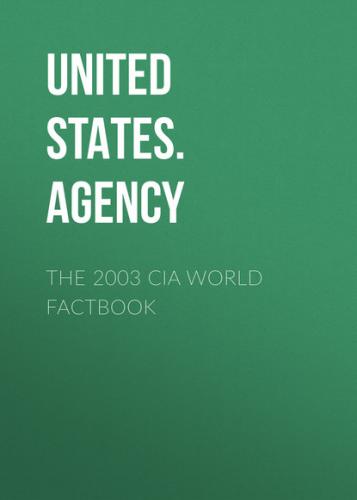Alliance '90/Greens [Angelika BEER and Reinhard BUETIKOFER];
Christian Democratic Union or CDU [Angela MERKEL]; Christian Social
Union or CSU [Edmund STOIBER, chairman]; Free Democratic Party or
FDP [Guido WESTERWELLE, chairman]; Party of Democratic Socialism or
PDS [Lothar BISKY]; Social Democratic Party or SPD [Gerhard
SCHROEDER, chairman]
Political pressure groups and leaders:
employers' organizations; expellee, refugee, trade unions, and
veterans groups
International organization participation:
AfDB, AsDB, Australia Group, BDEAC, BIS, BSEC (observer), CBSS,
CDB, CE, CERN, EAPC, EBRD, ECE, EIB, EMU, ESA, EU, FAO, G- 5, G- 7,
G- 8, G-10, IADB, IAEA, IBRD, ICAO, ICC, ICCt, ICFTU, ICRM, IDA,
IEA, IFAD, IFC, IFRCS, IHO, ILO, IMF, IMO, Interpol, IOC, IOM, ISO,
ITU, MONUC, NAM (guest), NATO, NEA, NSG, OAS (observer), OECD, OPCW,
OSCE, PCA, UN, UN Security Council (temporary), UNAMSIL, UNCTAD,
UNESCO, UNHCR, UNIDO, UNIKOM, UNMIBH, UNMIK, UNMOVIC, UNOMIG, UPU,
WADB (nonregional), WCO, WEU, WHO, WIPO, WMO, WToO, WTrO, ZC
Diplomatic representation in the US: chief of mission: Ambassador Wolfgang Friedrich ISCHINGER consulate(s) general: Atlanta, Boston, Chicago, Detroit, Houston, Los Angeles, Miami, New York, San Francisco FAX: [1] (202) 298–4249 telephone: [1] (202) 298–8140 chancery: 4645 Reservoir Road NW, Washington, DC 20007
Diplomatic representation from the US: chief of mission: Ambassador Daniel R. COATS embassy: Neustaedtische Kirchstrasse 4–5, 10117 Berlin; note - a new embassy will be built near the Brandenburg Gate in Berlin mailing address: PSC 120, Box 1000, APO AE 09265 telephone: [49] (30) 238–5174 FAX: [49] (30) 238–6290 consulate(s) general: Duesseldorf, Frankfurt am Main, Hamburg, Leipzig, Munich
Flag description: three equal horizontal bands of black (top), red, and gold
Economy Germany
Economy - overview:
Germany's affluent and technologically powerful economy has turned
in a weak performance throughout much of the 1990s and early 2000s.
The modernization and integration of the eastern German economy
continues to be a costly long-term problem, with annual transfers
from west to east amounting to roughly $70 billion. Germany's ageing
population, combined with high unemployment, has pushed social
security outlays to a level exceeding contributions from workers.
Structural rigidities in the labor market - including strict
regulations on laying off workers and the setting of wages on a
national basis - have made unemployment a chronic problem. Growth in
2002 and 2003 fell short of 1%. Corporate restructuring and growing
capital markets are setting the foundations that could allow Germany
to meet the long-term challenges of European economic integration
and globalization, particularly if labor market rigidities are
further addressed. In the short run, however, the fall in government
revenues and the rise in expenditures have raised the deficit above
the EU's 3% debt limit.
GDP:
purchasing power parity - $2.16 trillion (2002 est.)
GDP - real growth rate:
0.2% (2002 est.)
GDP - per capita:
purchasing power parity - $26,200 (2002 est.)
GDP - composition by sector: agriculture: 1% industry: 31% services: 68% (2002 est.)
Population below poverty line:
NA%
Household income or consumption by percentage share: lowest 10%: 3.6% highest 10%: 25.1% (1997)
Distribution of family income - Gini index:
30 (1994)
Inflation rate (consumer prices):
1.3% (2002 est.)
Labor force:
41.9 million (2001)
Labor force - by occupation:
industry 33.4%, agriculture 2.8%, services 63.8% (1999)
Unemployment rate:
9.8% (2002 est.)
Budget:
revenues: $802 billion
expenditures: $825 billion, including capital expenditures of $NA
(2001 est.)
Industries:
among the world's largest and most technologically advanced
producers of iron, steel, coal, cement, chemicals, machinery,
vehicles, machine tools, electronics, food and beverages;
shipbuilding; textiles
Industrial production growth rate:
−2.1% (2002 est.)
Electricity - production:
544.8 billion kWh (2001)
Electricity - production by source: fossil fuel: 61.8% hydro: 4.2% other: 4.1% (2001) nuclear: 29.9%
Electricity - consumption:
506.8 billion kWh (2001)
Electricity - exports:
43.9 billion kWh (2001)
Electricity - imports:
44 billion kWh (2001)
Oil - production:
85,860 bbl/day (2001 est.)
Oil - consumption:
2.813 million bbl/day (2001 est.)
Oil - exports:
404,300 bbl/day (2001)
Oil - imports:
3.081 million bbl/day (2001)
Oil - proved reserves:
327.3 million bbl (37257)
Natural gas - production:
22.16 billion cu m (2001 est.)
Natural gas - consumption:
94.34 billion cu m (2001 est.)
Natural gas - exports:
6.674 billion cu m (2001 est.)
Natural gas - imports:
78.73 billion cu m (2001 est.)
Natural gas - proved reserves:
298.3 billion cu m (37257)
Agriculture - products: potatoes, wheat, barley, sugar beets, fruit, cabbages; cattle, pigs, poultry
Exports: $608 billion f.o.b. (2002 est.)
Exports - commodities:
machinery, vehicles, chemicals, metals and manufactures,
foodstuffs, textiles
Exports - partners:
France 10.7%, US 10.3%, UK 8.4%, Italy 7.3%, Netherlands 6.1%,
Austria 5.1%, Belgium 4.8%,
